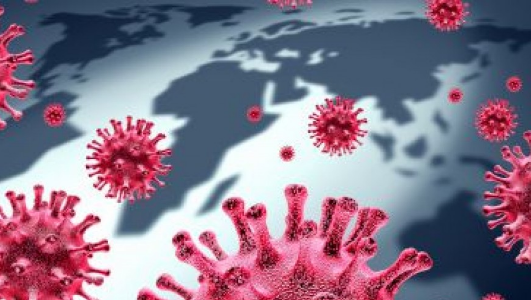COVID-19: Why SARS-CoV-2’s Recurrent Mutations Could Lead us to a Vaccine

It has been only over four months that SARS-CoV-2 spilled over to humans and started spreading. Not only has the virus given rise to worldwide panic in the form of the COVID-19 pandemic, it has also shown tremendous genomic diversity accompanied by recurrent mutations.
As part of a study, a team from the UCL (University College of London) analysed over 7,500 virus genomes extracted from those that have been infected. The results of their research were reported in an article that has been published in the peer-reviewed scientific journal Infection, Genetics and Evolution on May 5. The team has characterised patterns of diversity of the viral genome, which could offer clues for possible drugs and vaccine targets.
The study found about 200 recurrent mutations in the viral genomes. The enormous mutation rate could be suggestive of how the virus is adapting and evolving according to human hosts in varying conditions worldwide.
Another interesting finding of the study is that a large portion of global genetic diversity of the virus is found in all of the countries that have been the worst affected by the virus. What does this mean? The nub of the matter is that finding ‘patient zero’ in these countries is almost next to impossible. It is because extensive global transmission in the early phase of the pandemic has occurred in these countries.
Professor Francois Balloux, one of the authors of the study, had the following to say about the mutation of the virus and the adaptation it has made so far. “All viruses naturally mutate. Mutations in themselves are not a bad thing and there is nothing to suggest SARS-CoV-2 is mutating faster or slower than expected. So far we cannot say whether SARS-CoV-2 is becoming more or less lethal and contagious,” he reportedly said.
The study found that the mutations identified in the viral genome were not evenly distributed across the genome. Some parts of the viral genome were found to have undergone heavy mutation while other parts are not mutating. One inference from it, as the study suggests, could be that the readily mutated portions are important for its adaptation in different conditions, which, obviously is the primary condition for its survival. These portions could also be targets for drug and vaccine development.
“A major challenge to defeating viruses is that a vaccine or drug might no longer be effective if the virus has mutated. If we focus our efforts on parts of the virus that are less likely to mutate, we have a better chance of developing drugs that will be effective in the long run. We need to develop drugs and vaccines that cannot be easily evaded by the virus,” explained Professor Balloux.
In many areas, including the United Kingdom, for example, the diversity of the virus that was sampled was nearly equal to that seen across the world. This is seen to be suggestive of the fact that the virus entered such a country numerous times independently, rather than through a single case.
Notably, the first ever genome sequence of the SARS-CoV-2 virus was submitted to a public repository by Chinese at an unprecedented pace. Since then, an extraordinary number of the genome sequences of the virus have been done in a very short span of time.
Get the latest reports & analysis with people's perspective on Protests, movements & deep analytical videos, discussions of the current affairs in your Telegram app. Subscribe to NewsClick's Telegram channel & get Real-Time updates on stories, as they get published on our website.
























